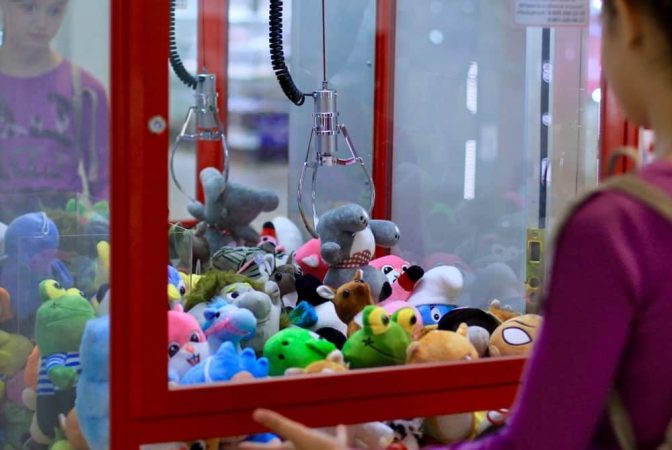Some may argue that claw machines are harmless and provide fun for children who visit gaming arcades, although others warn that these devices are entry-level forms of slot machines.
While you might never presume that your child is engaged in gambling when visiting a gaming arcade, the similarities between claw and slot machines are noticeable. Both offer jackpot prizes, one in the form of cash and the other in things that children covet – giant chocolate bars, stuffed toys or even high-value prizes like tablets or GoPros.
Of course, the claw machines are notorious for having a soft grip, no matter how much effort a child puts in to grab that reward. As a result, there is an ongoing discussion on how ethical these contraptions are, especially since their target market is young children.
Some parents have been hoisting red flags and warning that these games often act as triggers for endearing kids to gambling practices or even developing other forms of addictions or reckless behaviours down the line.
But what is it that makes claw machines so enticing, yet simultaneously so unfair?
How Do the Odds Work?
Claw machine odds of winning are set by the operator, who can adjust the strength of the grip. This strength can become firmer when it’s time for a payout. For example, the force in pounds per square inch (PSI) can increase from six PSI for the first ten grips to 11 PSI during the eleventh and twelfth grips, allowing for a prize to be raised.
Operators don’t make winning easy, and children often spend countless hours slotting coins into a machine in the hope of clenching a prize. However, operators are sometimes more lenient towards very young kids and might reduce the payout odds to every third or fourth attempt out of a dozen.
The Legalities
Since it’s relatively easy to rig claw and crane machines, thus making the winning of a valuable prize almost impossible, many people argue that these machines go against the interests of children and, ultimately, the parents who have to finance these drawing attempts.
In the US, most states consider claw games to be games of chance, although several states, such as New Jersey, treat them as skill-based games. In those states where claw games are seen as games of chance, these machines are regulated by the Legalised Games of Chance Control Commission and are subject to regular inspections to ensure fair play.
The Psychology
Children are drawn to claw games by the apparently effortless way to win a prize that they can physically perceive to be at the grasp of their hands. The player is often confident of victory up until the very last moment when the claw lets go.
At this stage, the children will usually ask their parents for a few more coins, confident that their next move would tip the scales in their favour, which generally doesn’t happen. However, just as with “cold” slot machines that never pay, so too will players of claw games stop playing if a prize is too hard to obtain. Children are also easily defeated by this as any other gambler.
Skin Gambling
Skin gambling is the ability of players to use in-game currencies to purchase virtual goods. These games mirror all the dangers associated with real gambling. Kids have been known to rack up vast sums of money on their parents’ credit cards to trade character skins and unlock loot boxes, weapons or other items of value.
Players who buy these items often sell them to other players for more significant cash sums. Even when players are not engaged in selling prizes to others, the idea of using real money to pay for an unknown award is undeniably a form of gambling that promotes risky and impulsive behaviour in children from a very young age.
This is primarily why lawmakers across the US are working together to have these games prohibited or have them carry an 18+ warning and alerts about the risks surrounding skin gambling and loot boxes.
Ultimately, it’s unlikely the age limits will ever change for the iconic childhood claw games. However, if states like New Jersey continue to push for fairer odds and realistic opportunities to win a prize, it’ll be enough to change the stigma.



